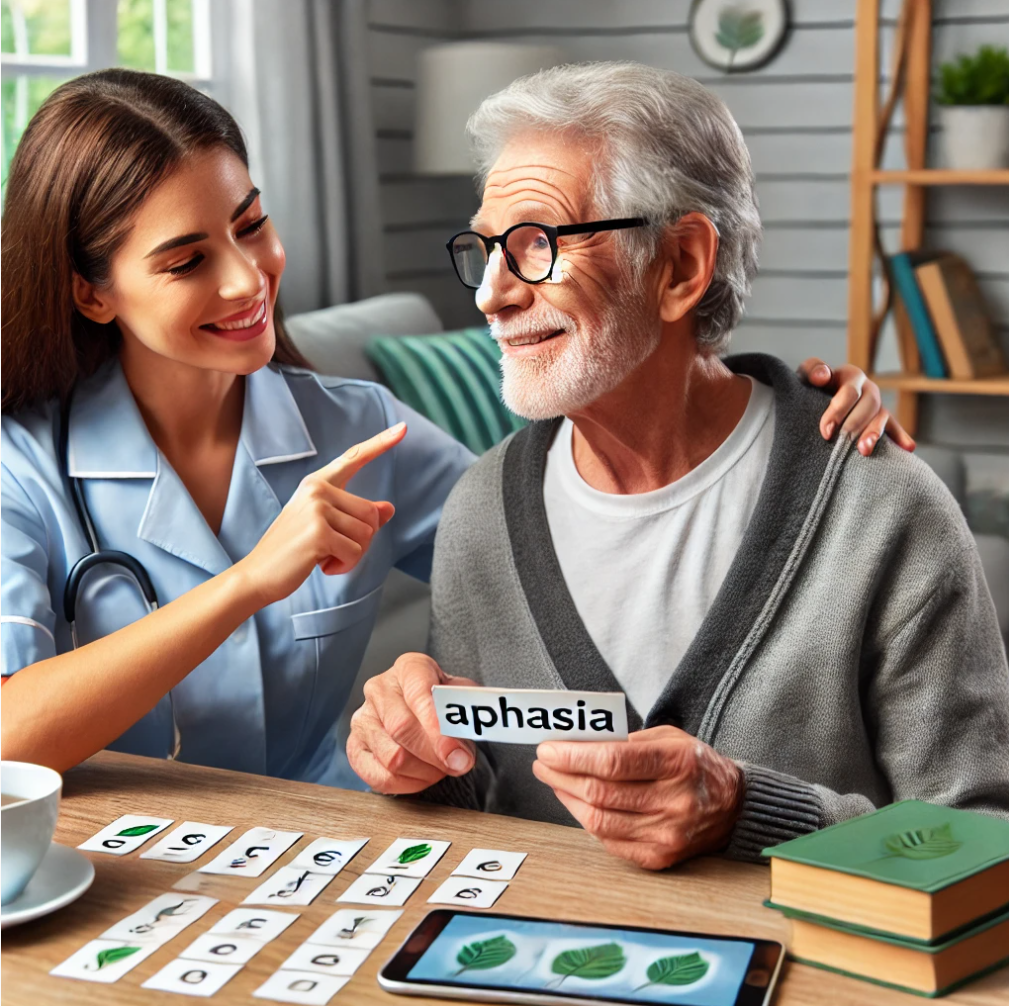Everyday Ways to Improve Aphasia

What is Aphasia?
Aphasia is a condition that makes it hard for people to speak, understand words, read, or write. It usually happens after a stroke or brain injury. Some people with aphasia have trouble finding the right words, while others may not understand what is being said to them. Even though aphasia can be frustrating, there are many ways to improve communication every day.
1. Practice Speaking Every Day
Using words as much as possible can help the brain heal and improve speech. Studies show that people who practice speaking often get better over time (Brady et al., 2016). Here are some simple ways to practice:
- Read Out Loud: Reading books, newspapers, or even food labels can help with word recall.
- Describe Objects: Look at things around you and try to name them. For example, if you see a chair, say “chair” out loud.
- Sing Songs: Singing can help with speech. Many people with aphasia find it easier to sing than to talk (Racette, Bard, & Peretz, 2006).
2. Use Other Ways to Communicate
Speaking is not the only way to communicate. If words are hard to find, try using:
- Gestures: Pointing, nodding, or using hand signs can help express thoughts.
- Writing or Drawing: Writing words or drawing pictures can help show what you mean.
- Apps or Picture Boards: Some people use pictures or apps on a tablet or phone to communicate (Kearns et al., 2019).
3. Take Your Time and Stay Calm
It’s important to stay relaxed when trying to talk. Rushing can make it harder to find the right words. Here are some helpful tips:
- Pause and Breathe: If words don’t come right away, take a deep breath and try again.
- Use Short Sentences: Speaking in short phrases can make talking easier.
- Ask for Help: If a word is hard to remember, ask someone to help by giving hints.
4. Play Word Games and Puzzles
Games that involve words can help improve language skills. Some good options include:
- Word Matching Games: Matching words with pictures can help with memory.
- Crossword Puzzles: Easy crossword puzzles can help with word recall.
- Talking with Friends and Family: Simple conversations every day help build confidence and speech skills.
5. Get Support from Others
Having support makes a big difference. Talking with family, friends, or a support group can help with communication. Studies show that people with aphasia who have support improve more than those who feel isolated (Elman & Bernstein-Ellis, 1999).
6. Work with a Speech Therapist
A speech-language pathologist (SLP) can help create a plan to improve communication. They use special exercises to help with speaking, understanding, and writing.
Conclusion
Aphasia can be challenging, but daily practice and support can help. By reading out loud, using gestures, playing word games, and staying patient, people with aphasia can improve their communication skills over time. Small steps each day can lead to big improvements!

References
Brady, M. C., Kelly, H., Godwin, J., Enderby, P., & Campbell, P. (2016). Speech and language therapy for aphasia following stroke. Cochrane Database of Systematic Reviews, (6).
Elman, R. J., & Bernstein-Ellis, E. (1999). The efficacy of group communication treatment in adults with chronic aphasia. Journal of Speech, Language, and Hearing Research, 42(2), 411-419.
Kearns, K. P., Lee, J. B., & Meigh, K. M. (2019). Communication strategies for adults with aphasia. American Journal of Speech-Language Pathology, 28(3), 1136-1148.
Racette, A., Bard, C., & Peretz, I. (2006). Making non-fluent aphasics speak: Sing along! Brain, 129(10), 2571-2584.

